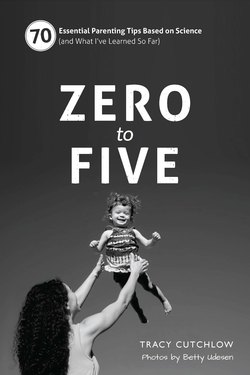Читать книгу Zero to Five - Tracy Cutchlow - Страница 15
На сайте Литреса книга снята с продажи.
ОглавлениеIf you’re suffering, get help
Depression among new parents is more common than you might think, and not discussed as much as it should be.
Postpartum depression can hit both parents. And if mom is depressed, it’s more likely that dad will be, too. The exact cause of postpartum depression isn’t known, but hormones, lack of sleep, and stress are thought to be contributing factors. Fortunately, postpartum depression is treatable. Sooner is better.
Depression affects baby’s brain, too. Depressed parents are less responsive to their babies, and they engage less positively with their babies. At 9 months old, the babies are
• less social,
• not as good at regulating their behavior,
• more emotionally negative,
• more easily stressed.
Ways to prepare
Find a counselor before baby comes, so you’ll have a number to call if you need it. Ask your doctor, midwife, doula, or friends for a recommendation. You want someone who can see you immediately, not in six weeks.
Designate a close friend or family member, or both, to tell you if he or she sees symptoms of depression in you, because you might not see them in yourself.
When to get help
A couple weeks of “baby blues”—fatigue, sadness, and worry—are normal. But if you feel anxious and overwhelmed most of the time, for longer than two weeks, get help. No excuses. No judgment. For men, common symptoms include feeling tired and irritable, escaping (into work, sports, alcohol), or acting more controlling, aggressive, or reckless. For women, see the next page.
THINK ABOUT IT
Do I have postpartum depression?
If you have had a baby within the last twelve months, and you have experienced some of these symptoms for more than two weeks, please find help. This list comes from Katherine Stone, publisher of PostpartumProgress.com, the most widely read blog on postpartum depression.
• You feel overwhelmed. Not like “Hey, this new-mom thing is hard.” More like “I can’t do this and I’m never going to be able to do this.”
• You feel guilty because you believe you should be handling new motherhood better than this. You feel like your baby deserves better.
• You don’t feel bonded to your baby. You’re not having that mythical mommy bliss that you see on TV or read about in magazines.
• You continually feel irritated or angry. You have no patience. Everything annoys you. You feel resentment toward your baby, or your partner, or your friends who don’t have babies. You feel out-of-control rage.
• You feel nothing but emptiness and numbness. You are just going through the motions.
• You feel sadness to the depths of your soul. You can’t stop crying, even when there’s no real reason to be crying.
• You can’t bring yourself to eat, or perhaps the only thing that makes you feel better is eating.
• You can’t sleep, no matter how tired you are. Or maybe all you can do is sleep. Whichever it is, your sleeping is completely screwed up, and it’s not just because you have a newborn.
• You can’t concentrate. You can’t focus. You can’t think of the words you want to say. You can’t remember what you were supposed to do. You can’t make a decision. You feel like you’re in a fog.
• You feel disconnected. You feel strangely apart from everyone, like there’s an invisible wall between you and the rest of the world.
• You might be having thoughts of running away and leaving your family behind.
• You’ve thought of driving off the road, or taking too many pills, or finding some other way to end this misery.
• You know something is wrong, that the way you are feeling is NOT right. You wonder if you’ve “gone crazy.”
• You are afraid that this is your new reality and that you’ve lost the “old you” forever.
• You are afraid that if you reach out for help, people will judge you. Or that your baby will be taken away.
Used with permission
